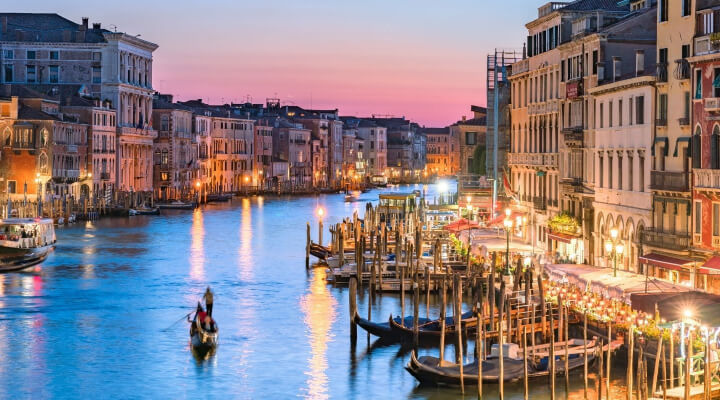Japan FAQs

Japan FAQs
Planning to visit Japan
Q. What is the best time to visit Japan?
Japan is a year-round destination, but the ideal time to visit depends on your interests. Spring (March to May) is famous for cherry blossoms, while autumn (September to November) offers vibrant fall foliage. Winter (December to February) is perfect for skiing in Hokkaido or enjoying hot springs, and summer (June to August) is great for festivals and exploring the northern regions.
We also highly recommend celebrating the start of a new year in Tokyo – you’ll get to take part in festivities for not just one day but for an entire week! Japan’s new year celebrations start from 29th December and continue until 4th January.
Q. Where to go on holiday in Japan?
Japan offers diverse destinations for every type of traveller. Tokyo is a bustling metropolis with modern attractions, Kyoto is rich in traditional temples and gardens, and Osaka is a haven for food lovers. Head to Hokkaido for stunning nature and skiing or Okinawa for tropical beaches. Don't miss hidden gems like Takayama, Kanazawa and more. Our Japan travel specialist can help create an itinerary that’s perfect for you so you have the best holiday ever!
Q. How long should I go to Japan for a holiday?
For a well-rounded Japan holiday, we recommend about two weeks. This gives you enough time to explore vibrant cities like Tokyo and Kyoto, visit iconic landmarks, immerse in cultural experiences, visit historic sites such as Hiroshima and Nara, experience WWII history, and even discover some hidden gems!
Q. How to find the best holiday package to Japan?
Check out our Japan deals section on the website or subscribe to receive exclusive offers straight to your inbox. Our Japan travel specialists can help craft the perfect itinerary for your Japan adventure.
Before you leave
Q. Where to stay in Japan?
Japan offers accommodation for all budgets. Try traditional ryokans in Kyoto for an authentic experience, capsule hotels in Tokyo for something unique, or luxury resorts in Okinawa. For families, apartment rentals or budget hotels near train stations are convenient options. We highly recommend a stay at a Buddhist temple. It’s a rare and peaceful experience that’s offered at only a few temples, usually in places like Nagano, Kyoto, Mount Mitake, and Dewa Sanzan.
For ultimate relaxation, consider staying at a property with an onsen (hot spring) attached—it's a quintessential Japanese experience that you don’t want to miss!
Q. What is there to do in Japan?
There’s so much to see and do in Japan – immerse yourself in history by visiting Kyoto’s ancient temples, exploring samurai castles like Himeji, or learning about WWII at Hiroshima and Nagasaki.
Nature enthusiasts can hike iconic trails, relax in traditional onsen hot springs, and enjoy stunning views of Mount Fuji. For modern attractions, Tokyo offers vibrant shopping districts and nightlife, while Osaka is home to exciting entertainment and theme parks like Universal Studios Japan. Food lovers can indulge in world-famous sushi, ramen, and sake, while also sampling regional specialties. Don’t miss unique experiences like tea ceremonies, staying in a ryokan, or wearing a kimono for a taste of authentic Japanese culture. Check out some of our favourite things to do, handpicked by our Japan travel specialist consultants to help you make the most of your trip.
Q. What should I pack for my trip to Japan?
· Comfortable walking shoes: You’ll walk a lot, especially in cities and temples.
· Layers: Japan’s weather varies by region and season.
· Universal adapter: Japan uses type A and B plugs (100V).
· A reusable water bottle: Public water fountains are common, and tap water is safe to drink.
Even if you forget about something Japan’s convenience stores and shops make it easy to find whatever you need!
Q. Do I need travel insurance for Japan?
Yes, travel insurance is highly recommended. Medical care in Japan is excellent but can be expensive. Ensure your policy covers unexpected medical needs and trip interruptions.
Q. Can I use New Zealand dollars in Japan?
No, you’ll need Japanese yen (JPY). ATMs are available at post offices, convenience stores, and airports, and credit cards are widely accepted in urban areas. Keep cash for rural regions and smaller businesses.
While you are there in Japan
Q. How to get around in Japan?
Japan’s public transport is world-class. The Shinkansen (bullet train) is perfect for long-distance travel, and local trains, buses, and subways make getting around cities easy. Purchase a Japan Rail Pass before arriving for unlimited train travel. Taxis are common and are good value when 3 or 4 people use them. Renting a car is ideal for rural areas like Hokkaido or Okinawa. Ask us about the best options.
Q. What are some cultural dos and don’ts in Japan?
· Do: Bow when greeting, learn basic Japanese phrases, and follow public transport etiquette (keep your phone on silent).
· Don’t: Talk loudly in public spaces, tip (it’s not customary), or wear shoes indoors (look for designated shoe areas).
· At temples and shrines, dress modestly, follow signs, and avoid taking photos where prohibited.
Q. What are some family-friendly activities in Japan?
· Visit Tokyo Disneyland and DisneySea for magical family fun.
· Enjoy hands-on cultural experiences like samurai lessons or traditional tea ceremonies.
· Visit Hakone for scenic boat rides and cable cars.
· Drive around the streets in the centre of Tokyo in your Go Kart.
· Slip into a beautiful kimono, get your hair and makeup done (ladies, you’ll get the full works!), and embrace the elegance of Japan’s iconic geisha culture.
· See a Sumo tournament, you will need to plan around these, as in Tokyo they only happen three times a year - January, May or September. Outside of these dates, you can visit one of the neighbourhood stables - the locations where the athletes sleep, eat & train.


